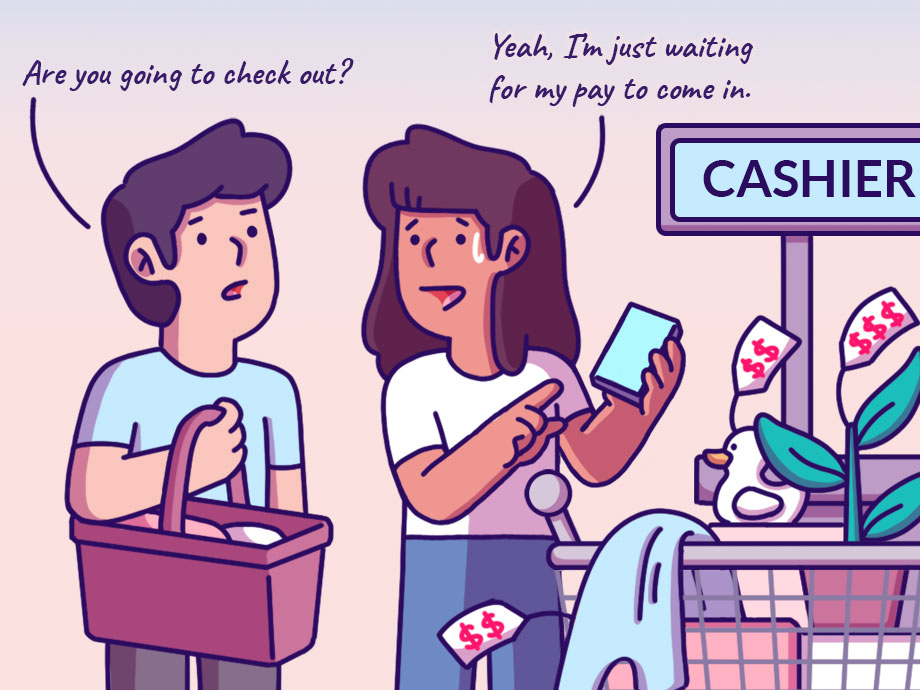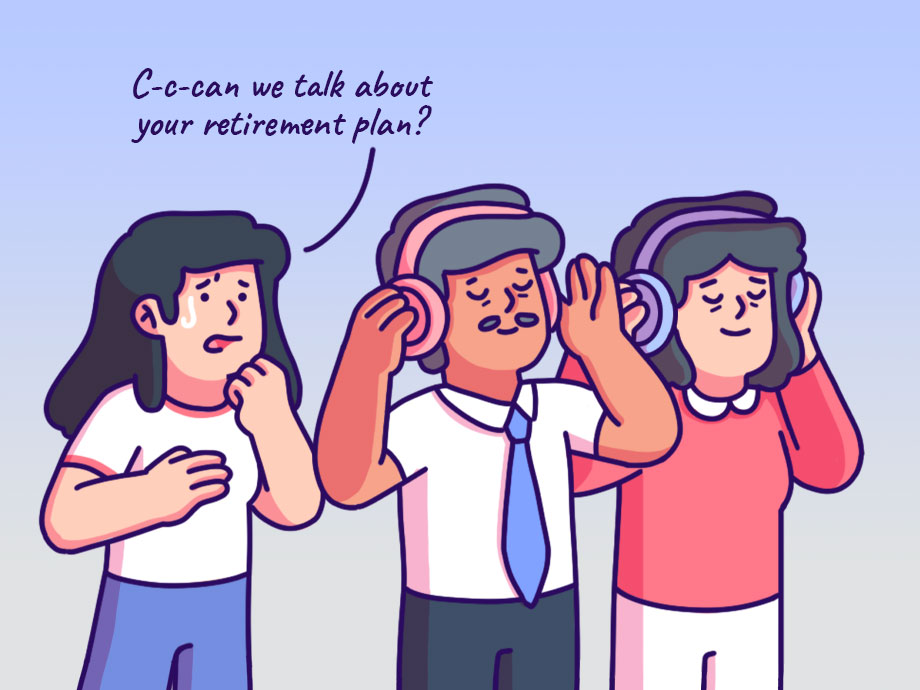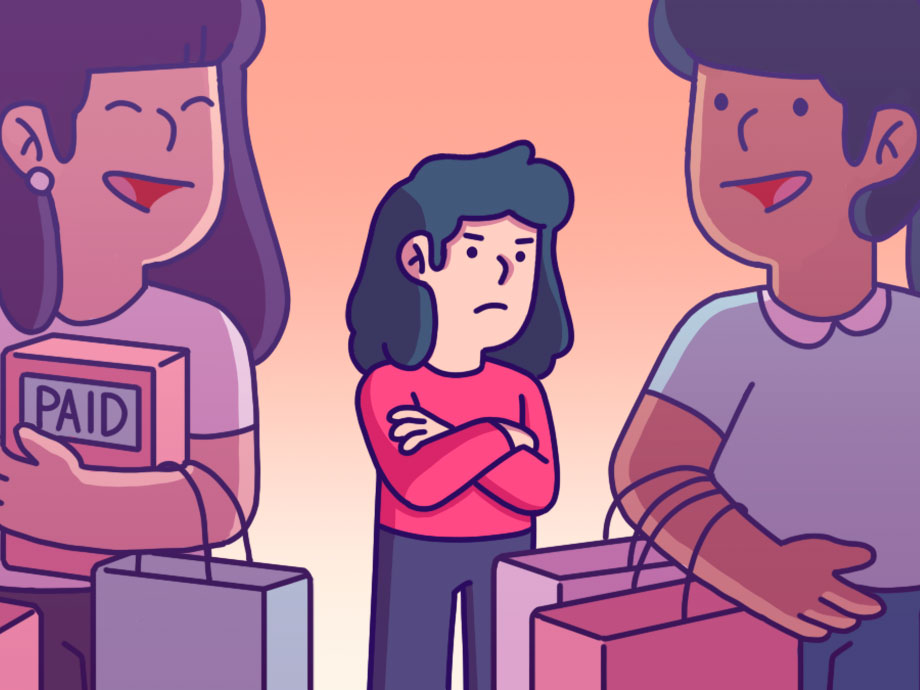Financial Planning | Life | Personal Finance | Personal Stories | Relationships & Family | Article
Do Couples with No Children Save, Spend, Invest and Plan for Retirement Differently? We Find Out!
by Ooi May Sim | 5 Jan 2023 | 8 mins read

“Get a job, find a partner, then settle down and start a family.” Does this phrase sound familiar to you?
For centuries, we’re taught that the only path in life is to have a good career, then settle down to have a family. But today, more and more people are finding new paths in life that go against this convention.
Some couples choose to remain unmarried, while others decide not to have children. The latter group are known as DINKs (Dual Income, No Kids) where both partners earn an income, but have no plans on having children.
While it’s becoming more socially acceptable not to want children, there are a variety of other reasons why couples these days aren’t having kids. According to Business Insider, couples aren’t having kids largely because of financial reasons. Economic uncertainty, coupled with the increasing cost of raising a child deters many couples from having kids. Other couples cite climate change as a reason to remain childless.
Whatever their reason for not having children, one thing is clear – DINK couples have different priorities and financial goals in life. With two income streams and no additional expenses that come with having children, we spoke to two DINKs and a licensed financial planner to find out how DINKs manage their money and investments.
More disposable income and higher spending power
It’s just the two of us, so we can keep our expenses low, says Wong Mei Ling, who has been married for 25 years and has no children.
Mei Ling, 54, adds that being child-free also means she doesn’t have to put so much emphasis on earning and saving more money.
“(People with children) have a lot of expenses. They also have to save for their children’s’ education, which we don’t have to do. Whatever we earn is for ourselves. If we see a nice restaurant, we can (dine there) without having to plan for it or set aside a budget,” she says.
Fellow DINK Thuran, 34, shares that as he doesn’t have children, he doesn’t feel guilty whenever he buys something for himself.
“There is no guilt (when my wife and I spend) because we work for (our money) and have no responsibilities,” he says, adding that the couple eat out often out of convenience.
Living together has also bulked up their savings and increased their disposable income because rental and household expenditure is now split between two people.
“Our families are not from Kuala Lumpur so we [Thuran and his wife] were renting (separate apartments units) before getting married. We were paying double of everything. Now that we are living together, I pay the rent while (my wife) pays (for the utility) bills,” says Thuran, who tied the knot last year.
Licenced financial planner Fong Woon Bing agrees that as DINKs don’t have children, they are able to save a lot more of their income.
“Households with children have a lot of associated costs,” he says. On the matter of housing alone, the 32-year-old says that DINKs just need a studio apartment because their living quarters only has to accommodate two people.
“They also have greater financial freedom and more spending power, so they can spend more on things that (they) love,” he adds.
Related
There’s a danger of overspending
However, while DINKs generally have the ability to save more, there is also the danger of becoming complacent about money and spending too much on their lifestyle.
“(DINKs) go out and eat out more often, can splurge on luxury experiences or items, and do spend more on food,” says Woon Bing, who even knows a DINK that has spent RM100,000 on audio systems.
To ensure DINKs do not go overboard with their spending, the financial planner advises DINKs to track their expenses so they know what they are spending on. He also believes they should set savings goals and be aware of their financial capabilities.
“It is important for them to understand their respective goals, (whether it is) travelling, advancing their education or retiring (early). Saving without a goal is like filling your car with petrol but having no destination,” he says.
Woon Bing adds that the golden rule is to always save first before spending and recommends setting aside at least 20% of their income every month, although they should strive to save more as they have more disposable income.
Related
Greater ability to take risks in their career and investments
DINKs have a greater ability to earn more money because they have higher mobility, says Woon Bing.
If they or their spouse gets a job offer in another country, they can move there to work, whereas a family with children has to consider a lot of other aspects such as their kid’s academic calendar and whether their children would be able to adjust to the change of environment, he adds.
As DINKs have less responsibilities in terms of childcare, they can also dedicate more time and mental capacity to building their career, says Woon Bing.
“They can focus on a single agenda, which is to climb the corporate ladder or to actively seek new business opportunities for expansion and to increase business profits,” he says.
On the investing front, DINKs can also take more risks on their investments compared to couples with children.
Thuran, who invests in the stock market and in cryptocurrency, feels that the only reason he is able to take more risk when investing is because he doesn’t have any children.
“I don’t think I would be this daring if I had children,” he says, explaining that he would probably be more afraid of losing the money if he was a family man.
While Mei Ling shares that not having children allows DINKs to take higher risk when it comes to investing, she is not driven to do so because she doesn’t have anyone to give it to after she leaves the world. She also doesn’t have the ‘appetite’ for high-risk investments.
“I am not driven to make so much money because at the end of the day, I have nobody to pass it on to,” she says.
So, Mei Ling has chosen to put her money into low risk, low effort investments.

To find out how DINKs should invest, they need to first be clear on what their goals are, their earning power and their current lifestyle expenses.
“If their goal is to achieve retirement earlier, they can allocate a higher percentage of their savings into aggressive investment portfolios, which can provide higher returns over a long-term period,” says Woon Bing.
He adds that among the approved investment products that they can explore in Malaysia are bonds, stocks, unit trusts, properties, ETFs, PRS, Peer-2-Peer Financing, Equity Crowd Funding and cryptocurrency.
Get sufficient insurance coverage
When planning for retirement, Woon Bing’s advice is for DINKs to get sufficient medical and critical illness insurance coverage.
This is to ensure that a person’s medical needs are covered in the future, or if an illness such as cancer happens and they are unable to work for years, insurance would help them pay for their living expenses as they do not have children to rely on to look after them.
“They should get sufficient medical coverage that could comfortably cover their medical expenses,” he says, adding that they should also review their policy every three to five years to ensure that their coverage is sufficient. They may not need to spend as much on life insurance, especially if they don’t have anyone depending on them financially.
That’s exactly what Mei Ling did. After her mother passed away, she cancelled her life insurance policy and placed that money into her medical insurance.
“My mother was my only dependent. When she passed away, I didn’t need a life insurance policy anymore, so I cancelled it and I put (the money) into my medical insurance,” she says.
Woon Bing adds that DINKs should also set up a savings fund that can be used to pay for treatments that are not covered by the insurance company such as annual health check-ups. This is to ensure they can cover their future medical needs.
Related
Retirement is a big concern
The biggest concern for Mei Ling and her husband is retirement. As she puts it: “We don’t have anyone who is going to take care of us, so we need to worry about growing old. There comes a point where we would need palliative care”.
To accommodate deteriorating health that often comes with aging, Mei Ling and her husband are on the lookout for retirement communities where residents have the option of living independently or with medical assistance. These communities often offer various housing options and is equipped with facilities and activities that promote social interactions for good mental health.
Based on Mei Ling’s research, a two-bedroom apartment at one of these retirement communities can cost upwards of RM4,000.
“We need recurring income to support this,” she says, and shares that they are looking at different investment options such as getting a property that can generate rental income.
Thuran on the other hand hasn’t started planning so far ahead but notes that retirement is an important aspect he and his wife should start planning for.
DINKs need to know of possible disruptions they may face in the future and discuss their options with a licensed financial planner, who can help them plan for a financially secure future, says Woon Bing.




















